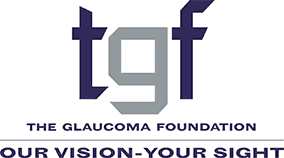
The 27th Annual Optic Nerve Rescue and Restoration Think Tank
On October 15th, 33 scientists and glaucoma clinicians from research institutions throughout the US and from Canada, Australia, Sweden, Singapore, Hong Kong, Japan, and Germany participated in The Glaucoma Foundation’s 27th Annual Scientific Think Tank, which focused on “New Vistas in Glaucoma Research.”
2021 featured a dynamic hybrid Glaucoma Think Tank meeting with live and online participants. In recent years, the Think Tank has focused on exploring exfoliation syndrome (XFS), an age-related systemic disease and the most common recognizable cause of open-angle glaucoma worldwide, comprising the majority of cases in some countries. “We are making exciting strides,” says Dr. Ritch, a pioneer and world expert in the field. “We have significantly increased the number of people working in this disease and areas relating to it. In the last few years, research has more than tripled.”
Collaboration is the key to the success of the Think Tank, which strives to create an open and effective dialogue among those attending that will lead to continued communications across disciplines and between laboratories – long after the meeting has ended. Collaborations have already advanced the understanding of exfoliation and yielded important new findings.
While the first session of this 2021 Think Tank continued its focus on exfoliation, with four papers presented, the meeting was also hybrid in terms of its content, extending beyond the focus on exfoliation to also include glaucoma genetics, neuroprotection, and neuroregeneration.
In a paper on Insulin Signaling and Restoration of Retinal Circuitry, Adriana di Polo, PhD of the University of Montreal presented research findings supporting the critical role of insulin for dendritic regeneration, reconnection, and circuit repair in glaucoma. Other speakers summarized studies their labs are conducting using pluripotent stem cell technology to develop strategies for repairing a damaged optic nerve.
Considerable time was spent discussing the current state of optic nerve transplantation and engraftment for glaucoma. Retinal ganglion cells are the cells that die in glaucoma, causing progressive and irreversible vision loss. Thomas V. Johnson III, The Allan & Shelley Holt Assistant Professor of Ophthalmology at Wilmer Eye Institute at Johns Hopkins University, gave a special lecture on retinal ganglion cell transplantation and engraftment, reporting on research into methodologies for achieving survival and functional connectivity by transplanted human stem cell-derived retinal ganglion cells following transplantation.
The participants were enthusiastic about the future of glaucoma research. At the lively final Think Tank session, participants synthesized the contents of earlier presentations and discussions and looked ahead to ongoing and future research needs. Among subjects discussed: what gene targets to study, other requirements for genetic studies going forward, and glaucoma experimental models needed for future research.
